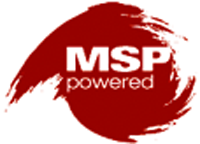With its vast cash hoard, Apple could buy pretty much ny company it took a fancy to. But Apple continues to show no interest in making big, splashy acquisitions, concentrating instead on strategic investments that bring the company key technologies and engineers with deep and sometimes exotic talents.
 Apple’s reported near-deal (Calcalist via Reuters) to buy Israeli flash memory specialist Anobit appears to be the latest in a string of strategic acquisitions that included low-power processor specialist PA Semi and artificial intelligence gurus Siri. Few technologies are more important to Apple than flash (not the kind that comes from Adobe.) The iPhone and iPad depend entirely on it for storage and Apple has been moving fast to replace traditional Mac hard drives with flash-based SSDs.
Apple’s reported near-deal (Calcalist via Reuters) to buy Israeli flash memory specialist Anobit appears to be the latest in a string of strategic acquisitions that included low-power processor specialist PA Semi and artificial intelligence gurus Siri. Few technologies are more important to Apple than flash (not the kind that comes from Adobe.) The iPhone and iPad depend entirely on it for storage and Apple has been moving fast to replace traditional Mac hard drives with flash-based SSDs.
A post on ZDNet’s Storage Bits blog by Robin Harris makes it clear what Anobit might bring to the Apple party. Flash is a difficult technology and getting harder as storage densities rise. The ever tinier memory cells can be difficult to read, flash storage can be unstable because of internal voltage leaks, and too many writes to the same memory cells can degrade performance.
Anobit applies signal processing technology, which it calls Memory Signal Processing, to improve the accuracy of memory reads. An it uses a variety of flash management techniques to manage errors, increase speed, and lower power consumption. I urge you to read Harris’ full post for the details.
Assuming the deal goes through and Anobit delivers what it promises, the acquisition could widen Apple’s already considerable advantages over its competition. The company has already moved aggressively to lock up abundant supplies of flash memory at attractive prices. An Anobit acquisition adds the possibility that Apple could run rings around its hardware competitors through use of superior flash controllers.
Thus do the good get better and the rich get even richer.